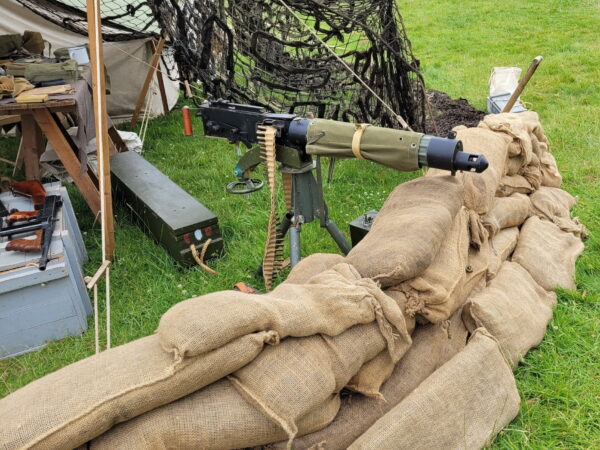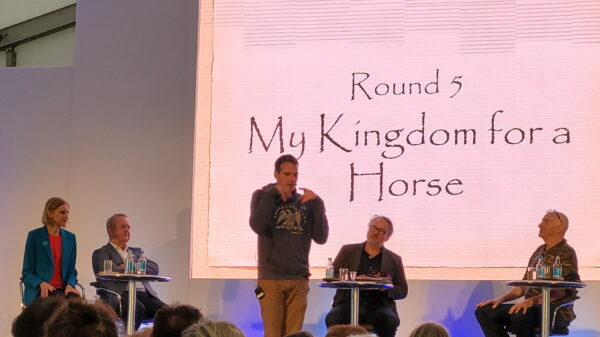I’m currently juggling an assortment of regular games, quite different at first glance: a combat vehicle simulator, a match-3 puzzle game, an idle dungeon crawler, a collectible card game, and a music trivia game. They’re all free-to-play, though, so share many of the persistent elements that tends to bring – rewards/unlocks, achievements/badges, daily/weekly missions, experience points and resulting ranks/levels. Some combination of those seems to be the key to holding my attention long-term, so I thought I’d do a little compare and contrast.
The oldest faithful is War Thunder, I’ve been regularly playing over nine years now which is pretty staggering. New vehicles are frequently added, now pushing well into the 1980s, but thankfully my Second World War focus means I can happily bimble about the lower tiers where it doesn’t take hundreds of hours to nudge up a progress bar. Each month a set of historical decals are made available with various challenges, typically getting a number of kills or a certain score with appropriate vehicles, and I’m finding those are a perfect hook – achievable in a sensible amount of time, and a nudge to play various different countries and vehicle types to mix things up.
I’ve been ticking along in Marvel Puzzle Quest for four years now, also a pretty decent run for a match-3 game. There’s a regular drumbeat of new character from across the Marvel pantheon to unlock and level up; after a couple of years I worked my way through the whole backlog, and now keep pace with the newcomers. It’s my mobile game of choice for killing five minutes when waiting around, or when half-watching something on television or half-listening to a call. There’s something about matching 3 things that remains strangely compelling, with the powers of the characters to mix things up a little and the ongoing levelling and unlocking for a sense of progress. Characters range from one to five stars in power, and while I’ve unlocked all of them I haven’t got any 4* character up to maximum level let alone a 5*, it’s calibrated to really slow things down in those higher levels so there’s no danger of ‘completing’ it.
Idle Champions of the Forgotten Realms has just passed the one year mark since I started with it. It also has a regular release of a new character per month, with options to acquire older characters, and I’d just finished unlocking everyone before the event that introduced their 100th champion – the Dungeon Master from the old cartoon series. As an idle game it’s well suited to starting up and leaving it to tick along in the background, occasionally popping back to slightly tweak a formation or start a new adventure, and there’s no shortage of additional elements to progress – character levels, achievements and so on that, like MPQ, slow right down at higher levels to ensure there’s always something to progress.
KARDS hasn’t hit the one year mark yet, and slips in and out of rotation a little; it can still be enormously enjoyable, but also enormously frustrating when you hit certain decks and/or have bad luck with your draws. I tend towards flavour-of-the-month decks in ranked battles but it gets a little stale doing the same thing each time; drafts, unranked battles, the PvE campaigns, or training mode allow for much more experimentation, and are better venues to tackle the daily missions that give a small amount of currency for playing with certain nations or using certain unit types.
SongPop is the newest kid on the block in my rotation, though the oldest game as it approaches its tenth birthday; I played the original incarnation on Facebook, then took about nine and a half years off before getting hooked again. It’s very cross-platform, with Android and iOS clients as well as Windows, but it’s not so much of a “kill five minutes” mobile game – tenths of a second can make all the difference to your score, and of course you need to be listening intently.
As well as head-to-head matches there’s a Party Mode that pits you against up to 300 other players in themed parties (60s, 70s, 80s, pop, rock, etc etc) lasting 24 hours. The top player (occasionally top 3) on the leaderboard at the end of the it gets a badge, with tokens, power-ups and XP distributed to everyone else. You compete against other players in brackets based on your level, and as I was starting off only the most popular categories had more than 50 people playing them; the hinterlands of jazz, blues and reggae were very sparsely populated. Joining right at the start of a party I might have been the only player for a while, so even if I couldn’t tell Miley Cyrus from Cyrus Vance I was still racking up bonus points for being in first place every time. I was absolutely smashing it, then levelled up to the final player bracket.
When you pitch up to a well-established MMO there’s often some sort of PvP skirmishing, and it’s often a bit of jolly old knockabout fun as you level up alongside a smattering of other new players and veterans trying out alts. Then you hit the level cap and are confronted with the other 99% of players, including highly co-ordinated teams of lightning-reflexed killers who’ve spent the years since launch honing their skills, characters and optimal positioning to maximise the insult value of particular emotes. SongPop turns out to be the same, except with a nice old lady called Doris who has an encyclopedic knowledge of 60s music and several hours to kill each day. Suddenly every party is full, many times over, and the top scores are in the hundreds of thousands. If you’re strong across every playlist in a party I reckon you can average about 2,000 points per minute, so we’re talking a good hour or three (considerably longer for those who can’t reliably win every round) of hammering the same category time after time. Not ludicrous, in the grand scheme of gaming time expenditure, but hardly a casual dabble any more. I’ve given up my dreams of a full set of badges, not that it was ever the grandest ambition, and have settled back into the basic pleasures of song recognition and the occasional nostalgia rush that evokes.
So there are persistent elements that, alongside the core gameplay, keep me coming back to those games. The publishers are probably more concerned about the other ubiquitous elements of free-to-play: in-game currencies, earned by playing and/or bought with real money; purchasable unlocks; gacha/loot boxes; advertising; premium/VIP status. Do they keep me paying as well as playing?
Premium vehicles in War Thunder are (I presume) one of its main sources of income; instantly available without needing to grind, and slightly more rewarding to use in battles. They’re separate to the standard vehicles obtained by playing and shouldn’t offer a clear advantage in battles, though there’s a bit of a furore now and again when battle ratings seem to be particularly favourable. I bought a few back in the day, particularly bundles of vehicles/currency/etc on sale, though haven’t felt the need for a while now. MPQ and Idle Champions both offer specific heroes for purchase, but in both cases exactly the same heroes can be unlocked by other means so they’re not so tempting in the cash shop; I have bought a couple of bundles, but only when steeply discounted in a sale. KARDS offers PvE campaigns and expansion sets that can be bought with either in-game currency or cash, and come with themed cards that can be very useful; I’ve bought an assortment, but with in-game currency rather than cash. For MPQ, Idle Champions and KARDS, though, specific unlocks take a back seat to random rewards from their various implementations of loot boxes (tokens, chests and card packs).
Personally I’m not a fan of spending real money on random rewards; all three games allow you to earn loot boxes by playing as well, and the results make me even less likely to spend real money. Once you’ve unlocked all the characters and basic equipment in the first two games opening packs is essentially an admin exercise of duplicate items giving incremental improvements with very occasional slightly more useful rewards. It’s most disappointing in KARDS, where booster packs should really be central to the CCG element, but while at first it’s great to be able to slot any sort of upgrade into your starter decks it doesn’t take long at all before you’re constructing specific decks that need specific, often rare, cards. With an ever-expanding pool of cards, the chances of getting something you really want from a random booster get ever-lower; I can’t remember the last time I got a new card from a pack that went straight into action. Fortunately there’s a wildcard system that lets you craft chosen cards, so at least you’re not entirely at the mercy of the randomness. I bought a few Steam bundles including card packs for KARDS at a good discount, and the Epic store giveaway that first tempted me to Idle Champions included a few stacks of chests, but I wouldn’t go out of my way to spend serious money on more. War Thunder also introduced crates requiring premium currency to open, but they seem tacked on, like it’s expected of a free-to-play game so they might as well shove them in, I’ve never bothered with them at all.
The only game that doesn’t sell random loot is SongPop, and it’s also the only one that does include advertising. More of a staple in mobile games, a free player of SongPop gets to enjoy an advert after every round they play. In the Windows Store version this consists of a static screen that can be immediately dismissed, there appears to be a pool of four or five other games that might pop up, none particularly recent; it smacks slightly of a forgotten bus stop still advertising Gods Of Egypt In Cinemas Now!! The Android/iOS versions have more intrusively irritating animated ads, occasionally immediately dismissible, more frequently unskippable. It’s pretty much unplayable on those platforms for any length of time without going slightly mad, whereas the Windows adverts are so easy to skip they might as well not be there; Goldilocks wouldn’t be impressed. The adverts can be avoided by upgrading to a VIP subscription.
Premium/VIP status is on offer in War Thunder, MPQ, and SongPop. In War Thunder it gives a significant boost to mission rewards and research speed, and is all but essential to unlock vehicles in the higher tiers; I kept it up for a few years when playing more, grabbing it at a good discount on a yearly basis, but it’s not really needed when bimbling around the lower tiers. I also took out a VIP sub in MPQ for a couple of months towards the beginning of my run; it gives out a daily bonus of tokens or in-game currency, particularly useful when frequently unlocking new heroes but not so necessary any more. In SongPop it removes adverts, allows you to select any playlist for matches, and has a few other perks; for about £4 a month it wasn’t a bad deal at all. SongPop also offered a Diamond VIP tier for four times the price that didn’t include a whole lot more; whether there to make the regular VIP status look better value, or for those who really loved the game and wanted to chuck more cash at it, it seemed a little odd.
On the whole, then, I much prefer to buy a specific known item or some sort of subscription with defined benefits, and am a dreadful cheapskate who mostly buys things in sales. I presume I’m in a minority, with loot boxes being so prevalent, but I only have a sample size of ‘me’ to work with. I’d hesitate to call any model too generous, but I’ve reached a point in all five games where it doesn’t feel necessary to buy anything; I would have said SongPop had ideal monetisation, no random loot boxes and a cheap VIP subscription as a way of showing support while also gaining a few benefits. Ironically, though, they just announced a new structure, doing away with regular and Diamond VIP in favour of a single SongPop Plus option for twice the price of the old VIP, so £8(ish) per month is steep for a light dabbling game. A two-tier system would seem to make sense, with a cheap option to remove adverts and get a few bonus rewards coupled with a pricier tier to access all playlists as well; I might’ve kept subscribing for a while under a fiver, but I guess it’s back to adverts for Sniper Fury.



